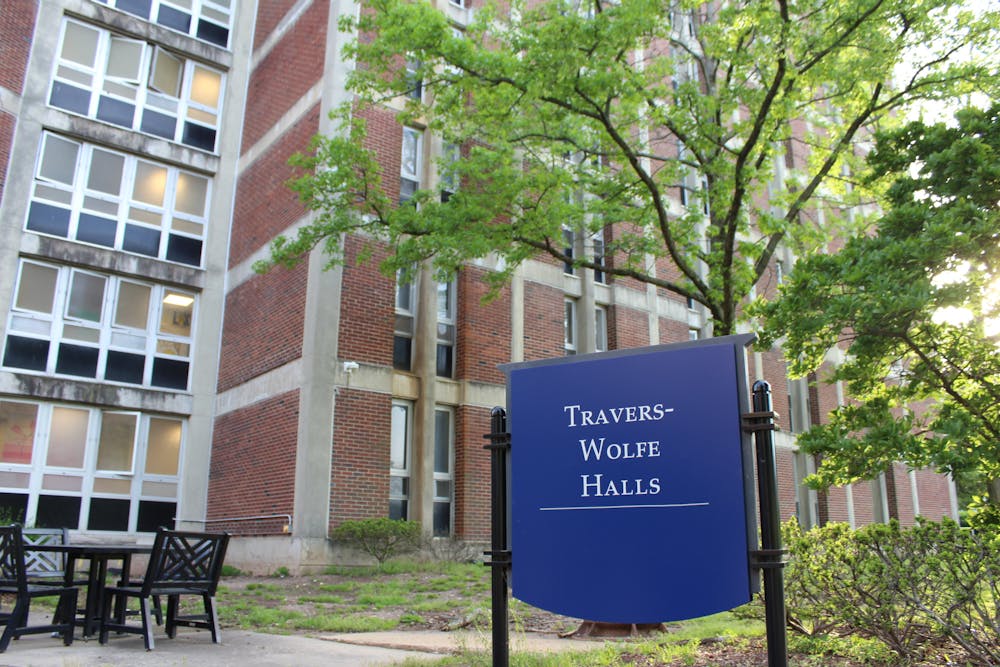By Isabella Darcy
News Editor
Students enrolled at Mercer County Community College will be able to live at the College at a reduced rate beginning this fall, per a partnership between the two institutions that was announced on July 15. MCCC students who participate in the partnership will also have access to campus resources and future room and board discounts.
The partnership comes during a period when the demand for housing has decreased following the COVID-19 pandemic. “We recognized that there were opportunities that would allow us to fill unused beds and support a community that had a need for housing,” Associate Vice President for Communications David Muha told The Signal.
Housing for double-occupancy rooms and a required meal plan will cost undergraduate students who attend the College $16,642 for the 2024-25 academic year, while MCCC students will be charged $8,500. Students of both institutions will reside in Wolfe Hall and have the same meal plan options, but students of the College will pay nearly double the price.
MCCC students will also have access to the College’s dining facilities, in addition to the library, the fitness center, recreational spaces, athletic events, intramurals and student organizations, and they will receive discounted room and board in the future if they decide to transfer to the College after completing their associate’s degree.
The College plans to house MCCC students in Wolfe Hall, a freshmen residence hall, on their own floor, separate from students of the College. It is unknown how many MCCC students will live at the College this fall, but the College will be able to accommodate approximately 20-25 students, according to Muha.
To support MCCC students, the College’s Department of Residential Education and Housing will assign a dedicated community advisor from the College to the MCCC floor and collaborate with campus partners to develop an online orientation module that will serve as a resource to the students.
Along with the MCCC-specific systems of support, “ResEd will perform their normal services and supports,” Tina Tormey, director of residential education and housing, told The Signal. “Mercer students will have access to the typical programs that any residential student would have access to as a result of living in the residence halls.”
MCCC already has an existing housing partnership with Rider University, but was in need of more housing. However, many MCCC students choose to complete their bachelor's degree at the College after completing their associate’s degree. Because of this, according to Muha, a housing partnership “seemed like a natural way to create a smoother transition for future potential transfer students.”
For years, the College and MCCC have had conversations about potential partnerships. It was when President Michael Bernstein arrived and began new collaborations that the agreement came to fruition, according to MCCC President Deborah Preston.
Throughout his first year at the College, Bernstein developed the LIONS Plan, which stands for “Linking Innovation with Operational Nimbleness and Sustainability.” Its purpose is to reduce or eliminate the College’s expected budget deficits. Through the plan, working groups formed to brainstorm new revenue sources and cost reductions.
One of the LIONS Plan working groups recommended that the College expand partnerships with community colleges, including developing a housing partnership.
Some students at the College expressed support of the housing partnership. Hannah Cascio, a senior early childhood education and psychology major, transferred from a community college herself. According to Cascio, community college students do not have the opportunity to get the “full” college experience.
“Jumping into a college or university after attending community college can feel overwhelming,” Cascio said. “With this new partnership, MCCC students can get the college experience and explore all that TCNJ has to offer.”
Cascio told The Signal that she believes that the housing partnership will lead to MCCC students who live at the College enrolling full-time to finish their undergraduate education, which she thinks is an “amazing thing.”
The College’s Student Government Cabinet has also expressed support. In SG’s response to the LIONS Plan, it said that it would support the 15 priority community college partnerships suggested in the LIONS Plan. The Cabinet's endorsement would be on the basis of the partnership being “a valid and viable source of revenue that promotes inclusivity regarding community college students and their residential needs.”
Jared Williams, Student Government’s Executive President senior political science major, told The Signal that SG is “aware that schools like Rider University have had a successful partnership with MCCC housing, and we like the prospects of new students possibly transferring to our campus after their completion at MCCC.”
Aimey Sebastian, a junior chemistry major, said she is in support of the housing partnership but thought it would make more sense for MCCC students to be housed in upperclassmen dorms.
“TCNJ has limited housing options for their current students as it is,” Sebastian told The Signal. “As long as TCNJ has measures to expand housing and puts MCCC students into non-freshmen housing, I don’t see an issue with it.”
Michael Kalinoski, a junior marketing major, said he finds the housing partnership to be a “solid solution” for MCCC students who want to experience living at a higher education institution. Kalinoski, said the administration should ensure that students of the College retain priority over MCCC students when it comes to choosing housing.
“As long as there are leftover dorm spots, then I find it to be a great way to incorporate those students into a situation where they are dorming as well as filling up extra spots no one has filled,” Kalinoski said.
MCCC students are excited, Preston said. “MCCC is one of the only community colleges in the state of New Jersey that offers student housing, and students are happy to have the opportunity to engage in the total college experience.”
Isabella Darcy is employed by Residential Education and Housing, but she is not involved with the department’s planning for Mercer County Community College students to reside at the College.







